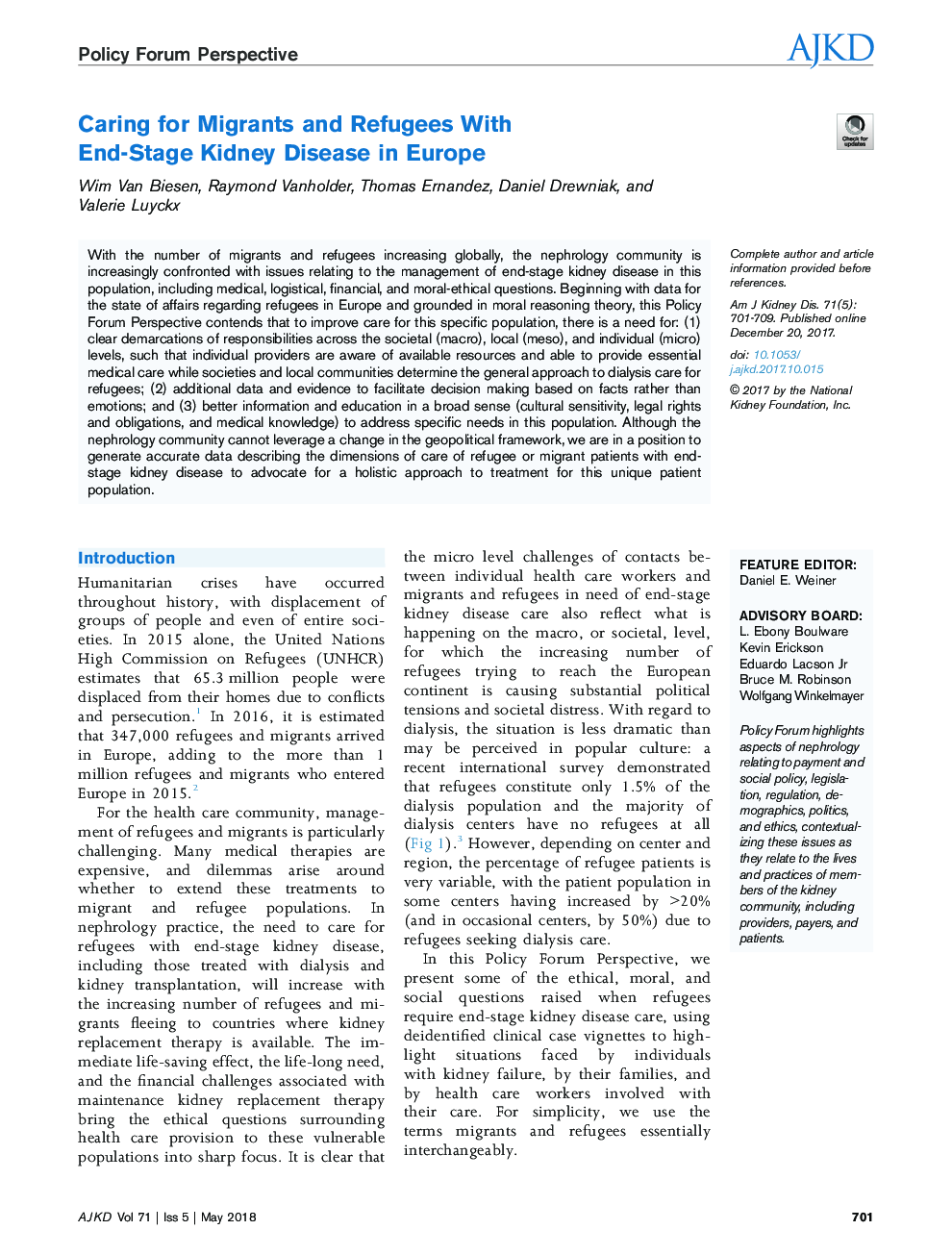| Article ID | Journal | Published Year | Pages | File Type |
|---|---|---|---|---|
| 8769795 | American Journal of Kidney Diseases | 2018 | 9 Pages |
Abstract
With the number of migrants and refugees increasing globally, the nephrology community is increasingly confronted with issues relating to the management of end-stage kidney disease in this population, including medical, logistical, financial, and moral-ethical questions. Beginning with data for the state of affairs regarding refugees in Europe and grounded in moral reasoning theory, this Policy Forum Perspective contends that to improve care for this specific population, there is a need for: (1) clear demarcations of responsibilities across the societal (macro), local (meso), and individual (micro) levels, such that individual providers are aware of available resources and able to provide essential medical care while societies and local communities determine the general approach to dialysis care for refugees; (2) additional data and evidence to facilitate decision making based on facts rather than emotions; and (3) better information and education in a broad sense (cultural sensitivity, legal rights and obligations, and medical knowledge) to address specific needs in this population. Although the nephrology community cannot leverage a change in the geopolitical framework, we are in a position to generate accurate data describing the dimensions of care of refugee or migrant patients with end-stage kidney disease to advocate for a holistic approach to treatment for this unique patient population.
Keywords
Related Topics
Health Sciences
Medicine and Dentistry
Nephrology
Authors
Wim Van Biesen, Raymond Vanholder, Thomas Ernandez, Daniel Drewniak, Valerie Luyckx,
